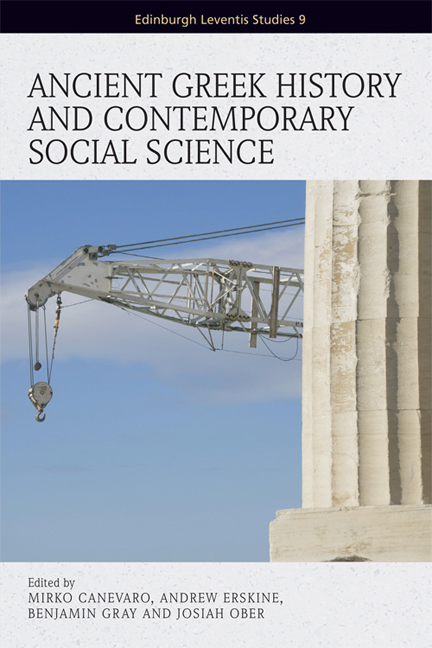10 - Cash and Crowns: A Network Approach to Greek Athletic Prizes
Published online by Cambridge University Press: 06 May 2021
Summary
THE RELATIONSHIP BETWEEN SPORT AND MONEY: MODERN AND ANCIENT CONCEPTIONS
For it is out of the innermost mind of the merchant, who will never understand war, that sport is born.
Werner SombartNo, stranger, for you do not look to me like a man who knows contests, such as abound among men, but like one who, faring to and fro with his benched ship, is a captain of sailors who are merchantmen, one who is mindful of his freight and keeps close watch on his cargo and the gains of his greed. No, you do not seem an athlete.
Euryalos in Homer, Odyssey 8.159–64There are different opinions about the relationship between sport and money. Euryalos’ speech in the Odyssey displays the view of a warriorathlete who despises merchants. It is directed to the unknown stranger – Odysseus has not yet revealed his identity – who first declines to take part in the Phaeacians’ athletic activity. But the words of Euryalos are too much; Odysseus takes a discus and throws it far further than the Phaeacians did, thus demonstrating who the real warrior-athlete is.
While in these verses sport is connected with glory and opposed to commerce, for Werner Sombart sport is rooted in commerce. That is a strange idea that can only be understood by considering the context of the First World War. Like many intellectuals, the famous economist and sociologist felt it a duty to make his contribution when millions of young countrymen risked their life on the battlefields. In 1915, he published his book Merchants and Heroes, which he dedicated to the German soldiers. In his opinion, the war was a culmination of a long-standing conflict between the world's two leading cultures: the English, commercial culture on the one hand side and the German, heroic culture on the other. In fact, the book is a sharp invective against England and almost every aspect of the English tradition. The English, Sombart claimed, lacked any noteworthy contribution to philosophy, arts or music; they were only devoted to commerce. Sport is a part of this picture. According to Sombart, sport had its roots in commerce, and sport suppressed the intellect and the war spirit.
- Type
- Chapter
- Information
- Ancient Greek History and Contemporary Social Science , pp. 293 - 312Publisher: Edinburgh University PressPrint publication year: 2018



